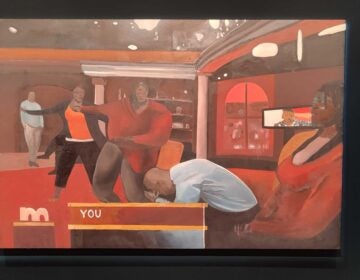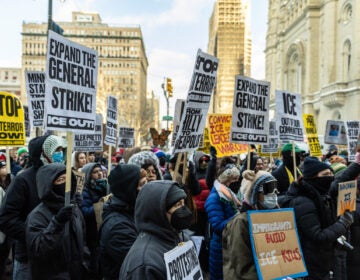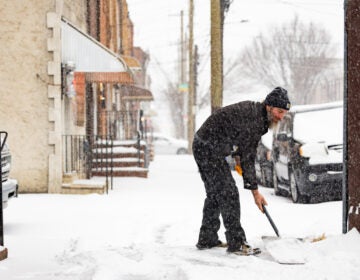Revolutionary Germantown Festival returns to Northwest Philly [gallery]
-

-

-

-
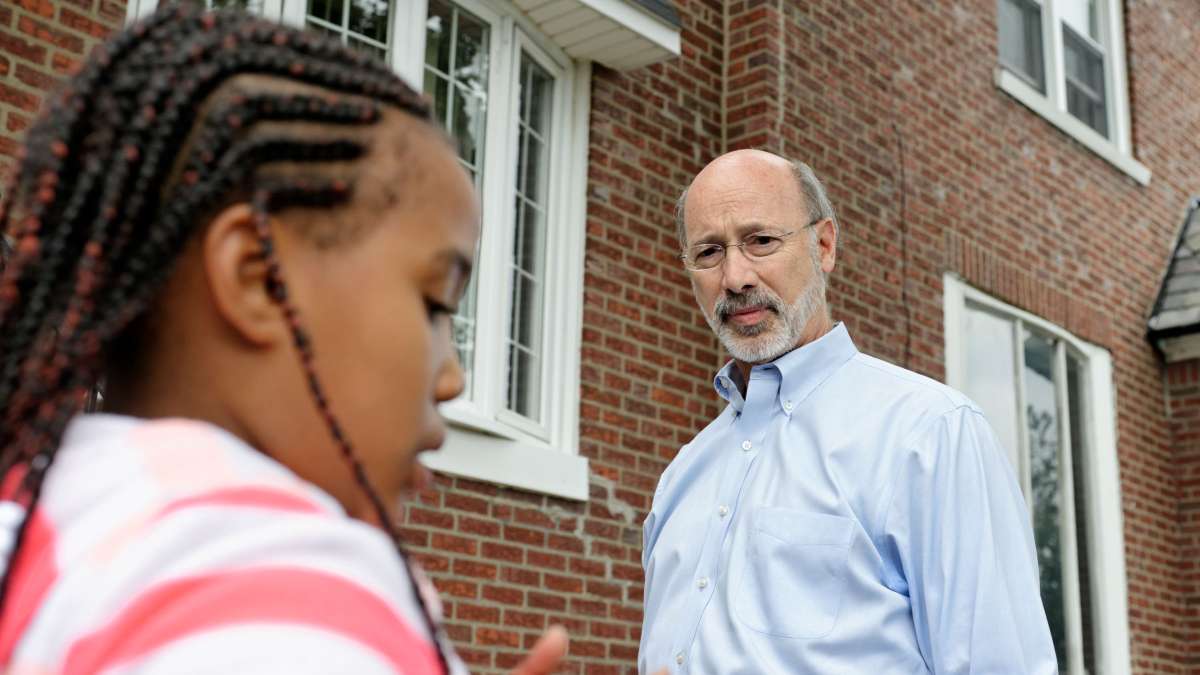
-

-

-
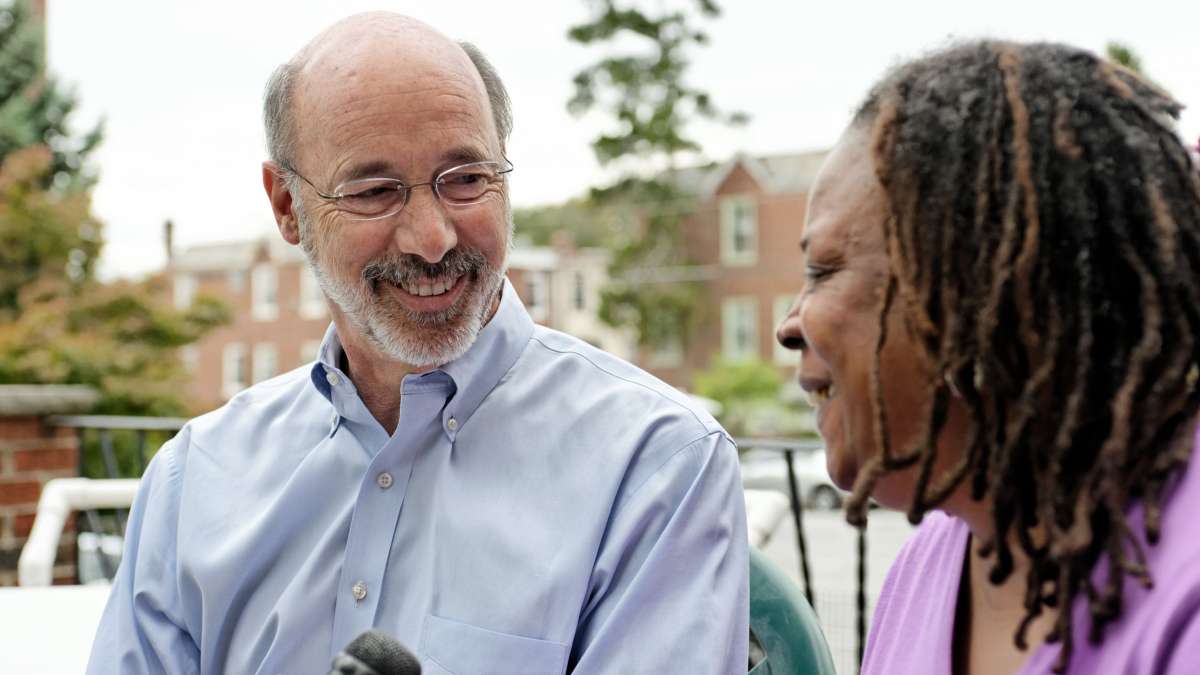
-

-

-
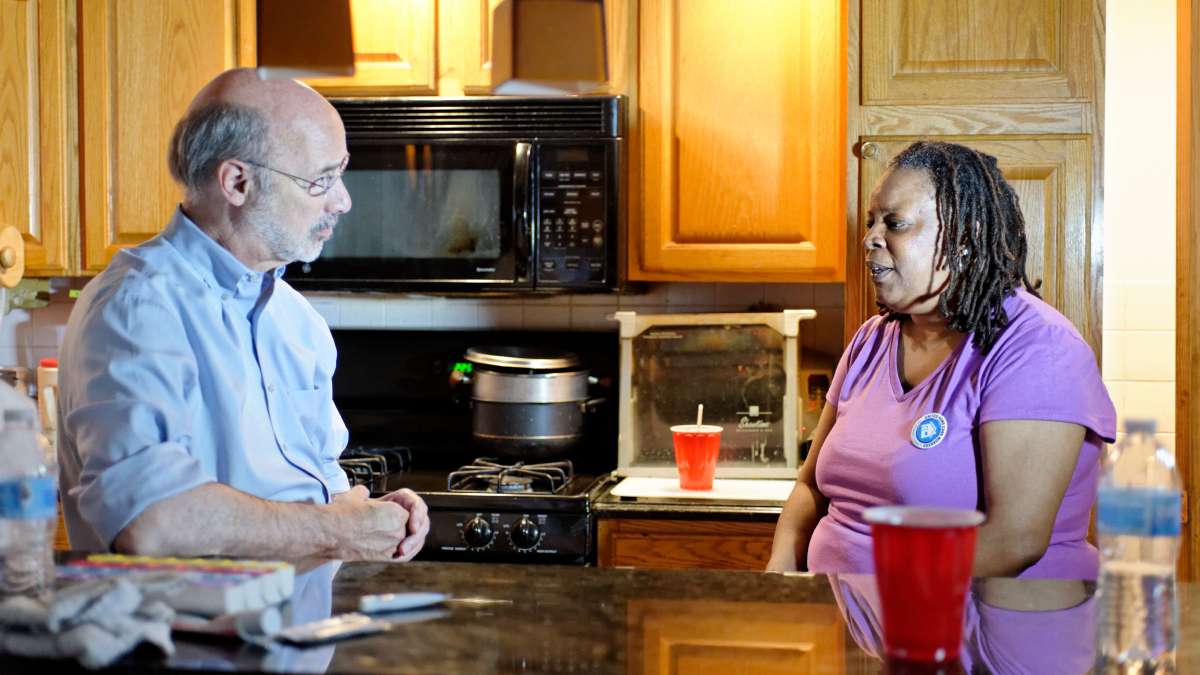
-
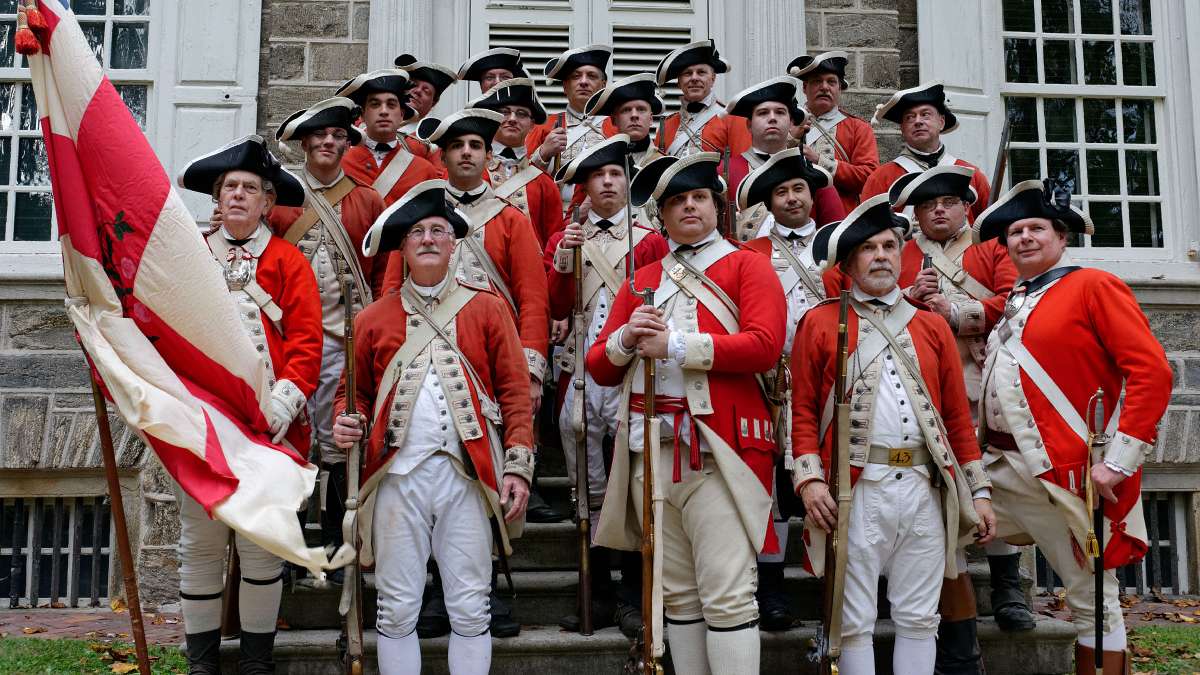
-
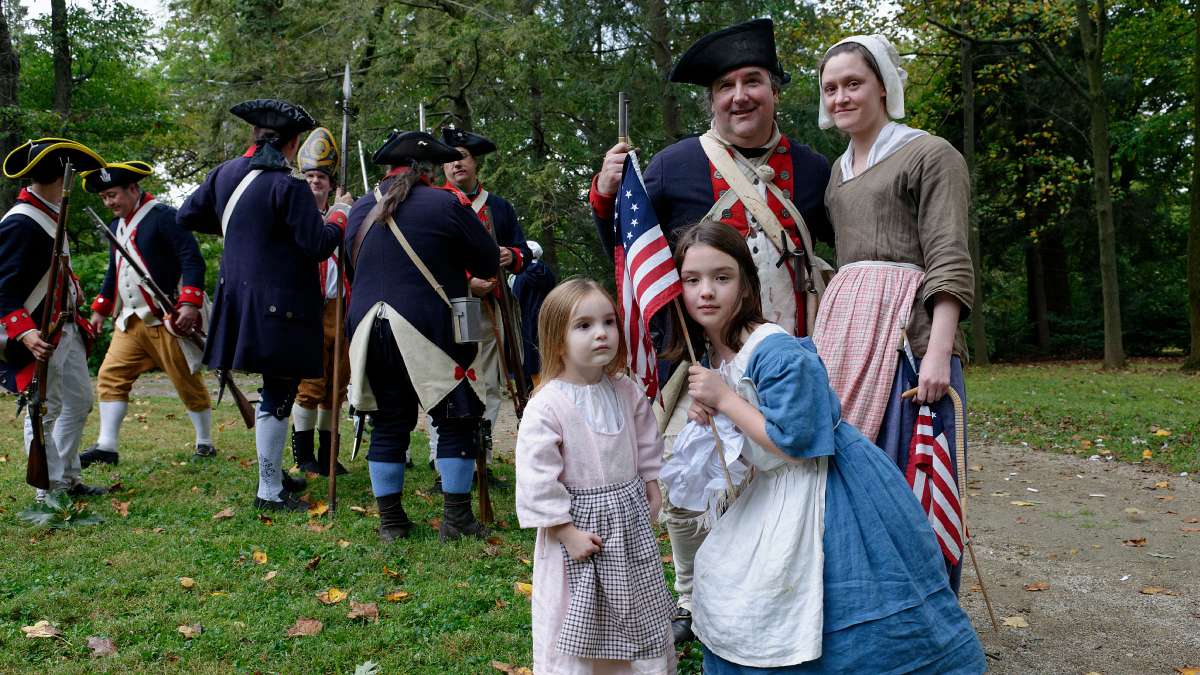
-
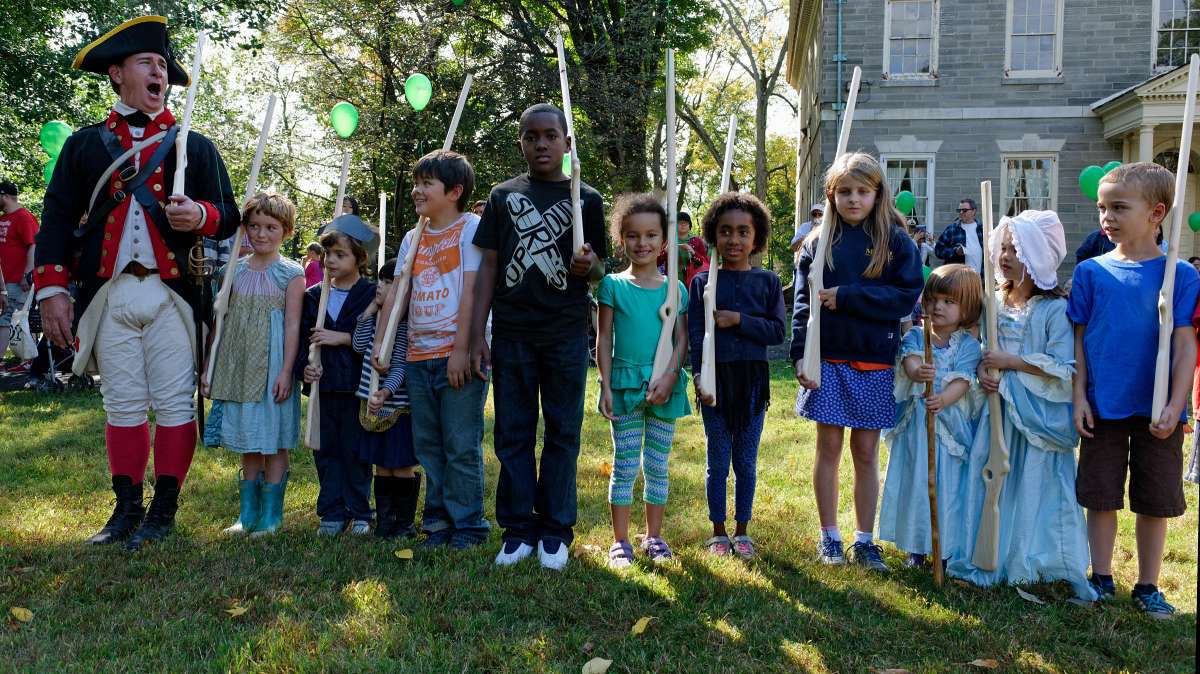
-

-

-

-
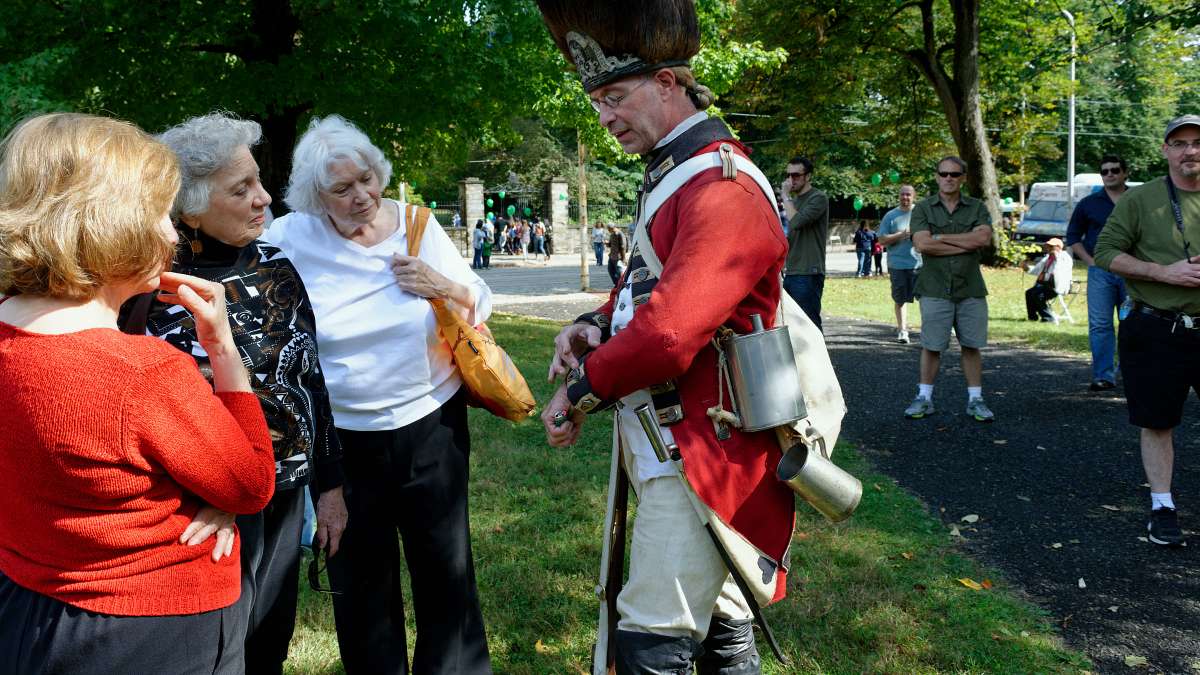
-
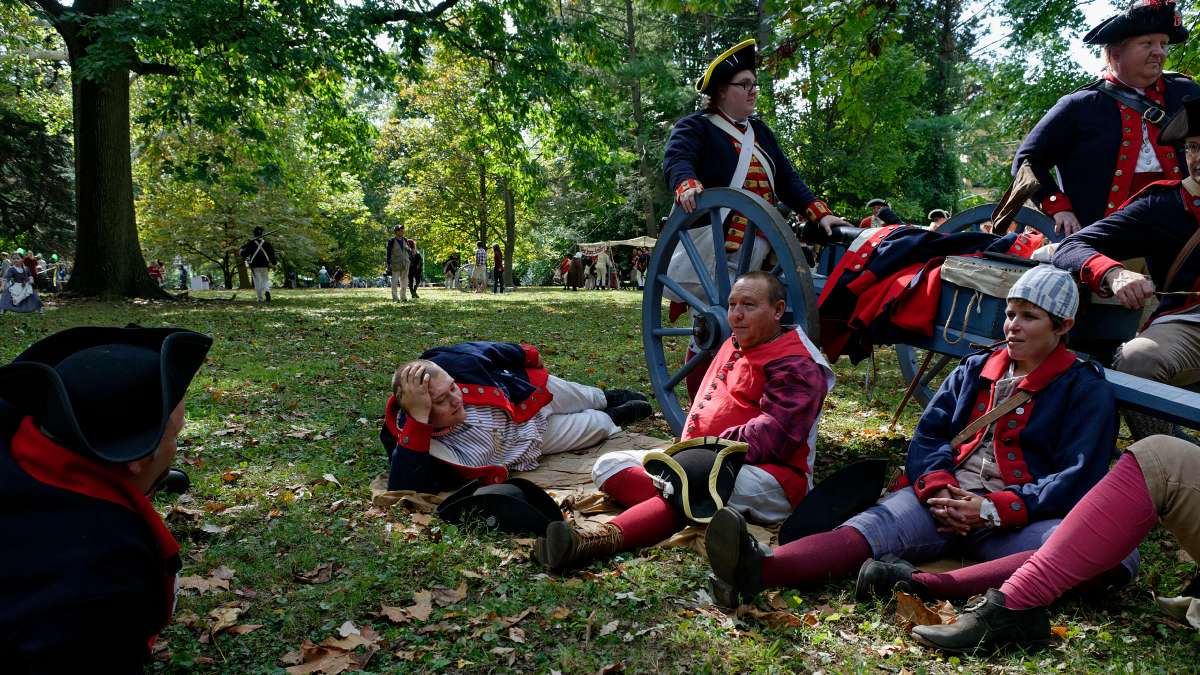
-

-
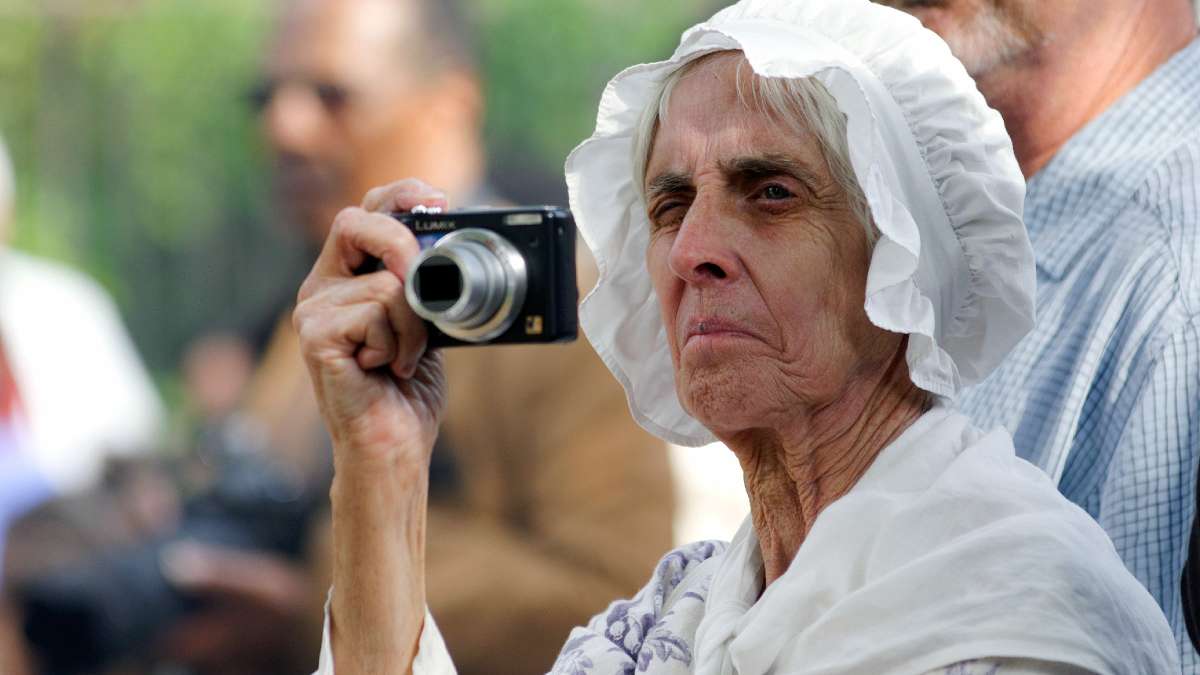
-
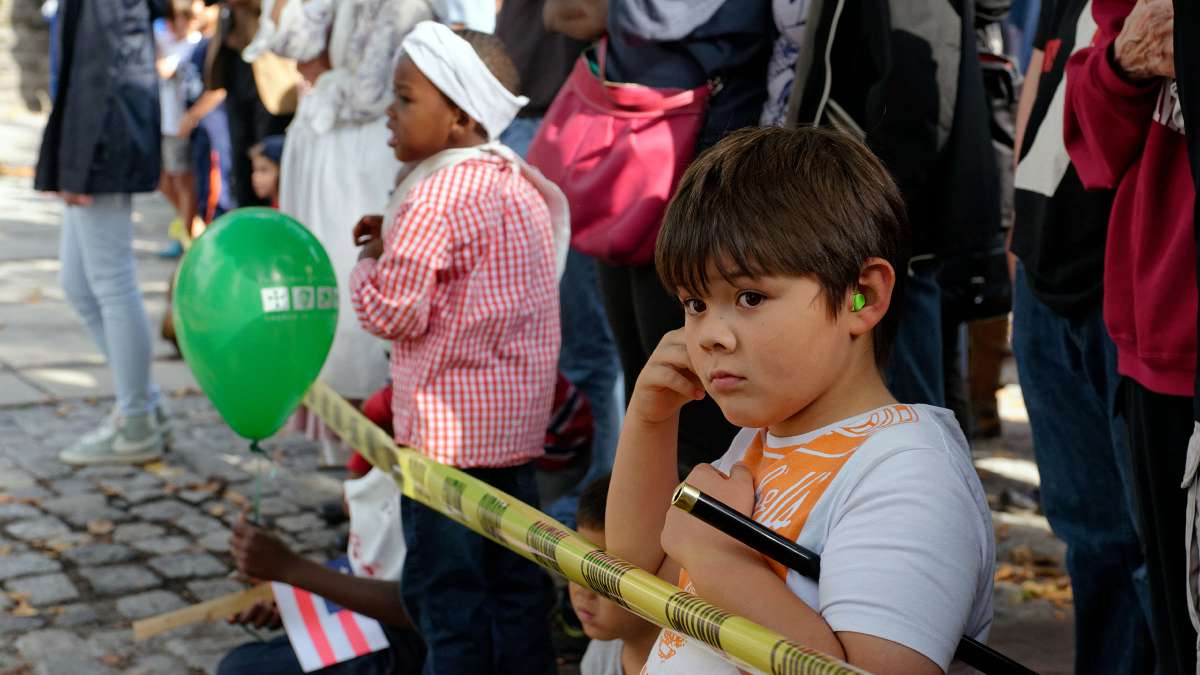
-

-
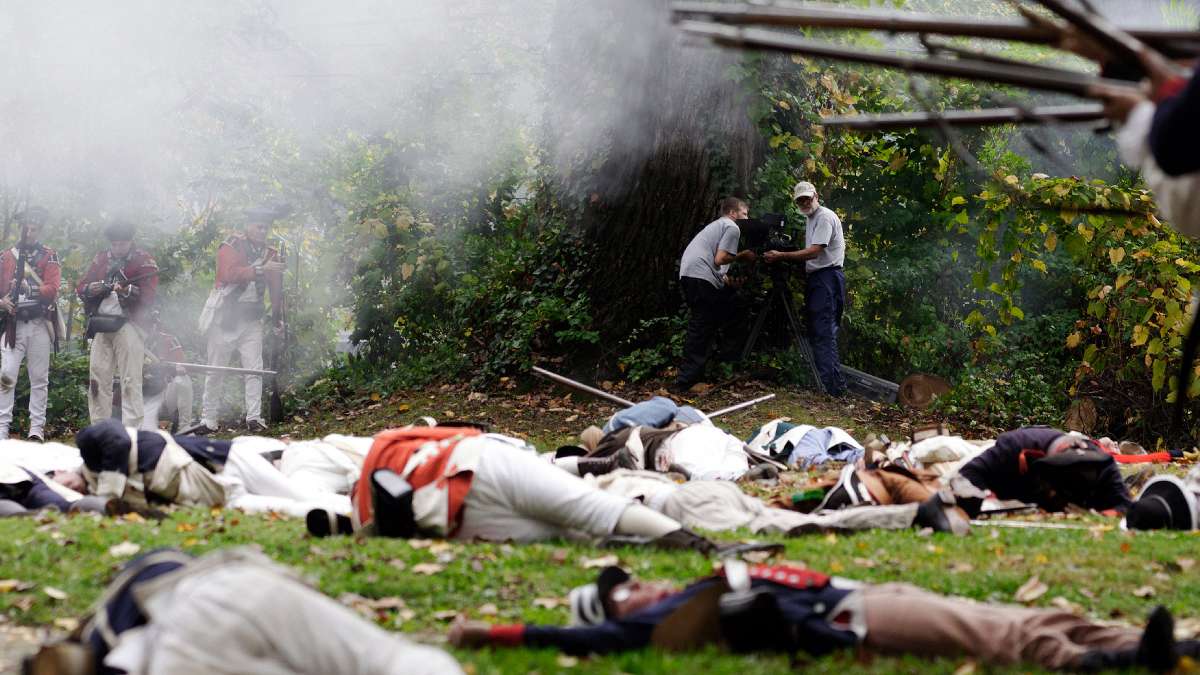
-
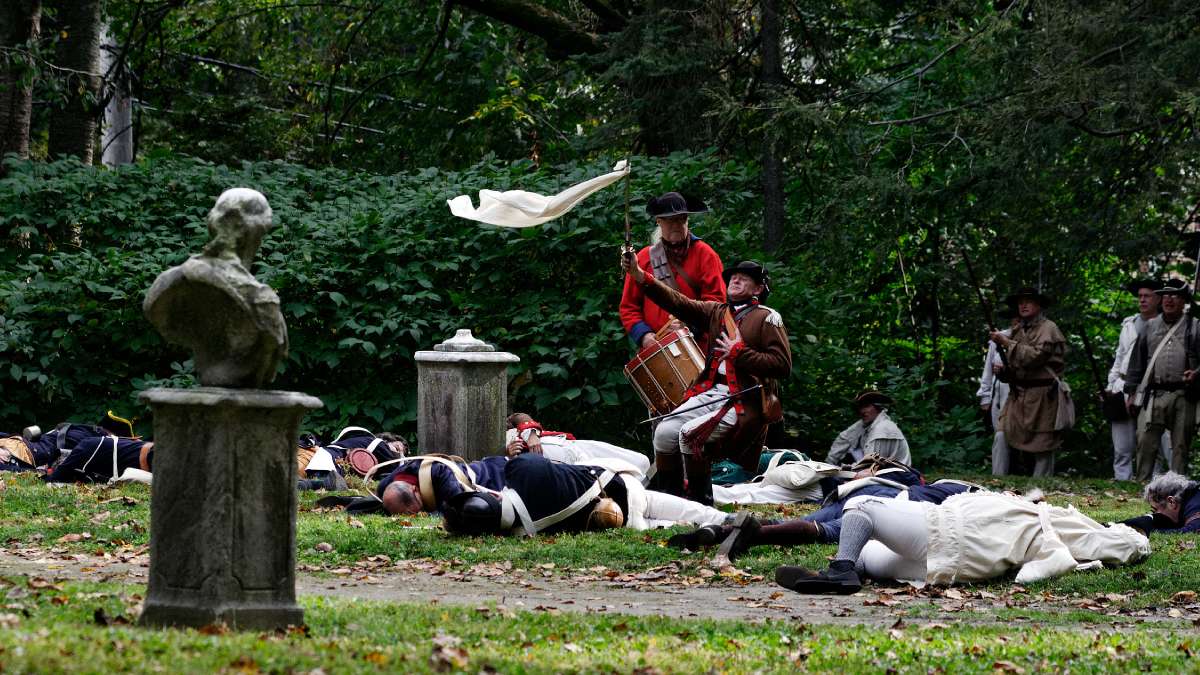
-
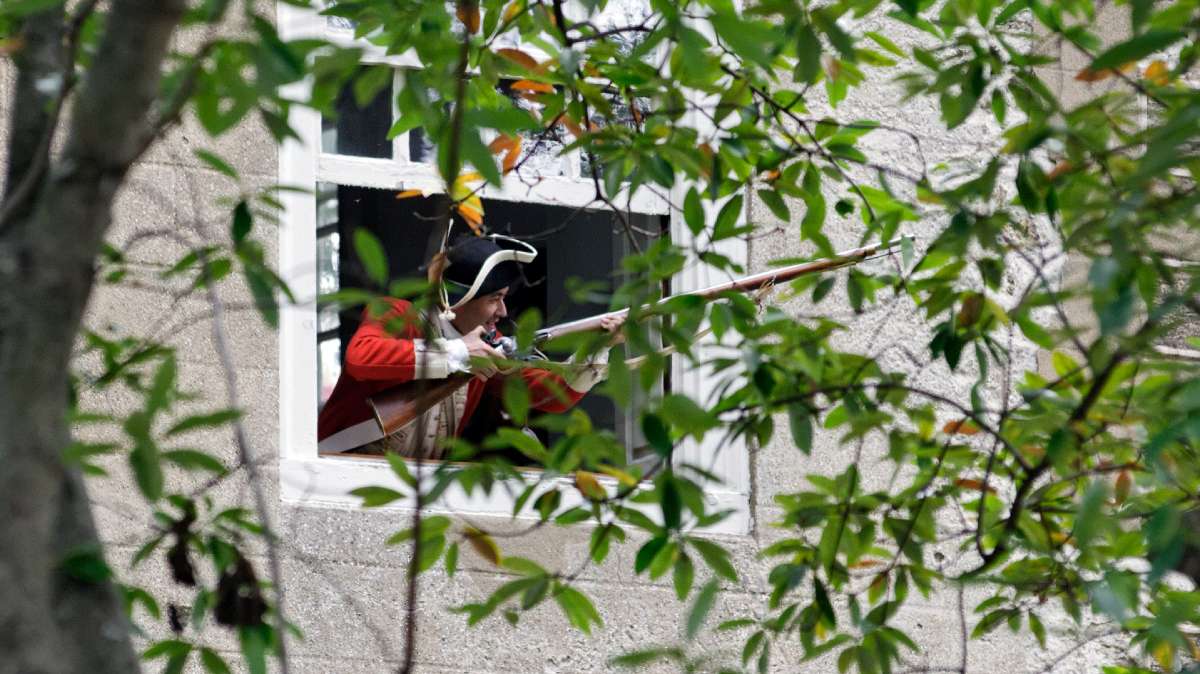
-
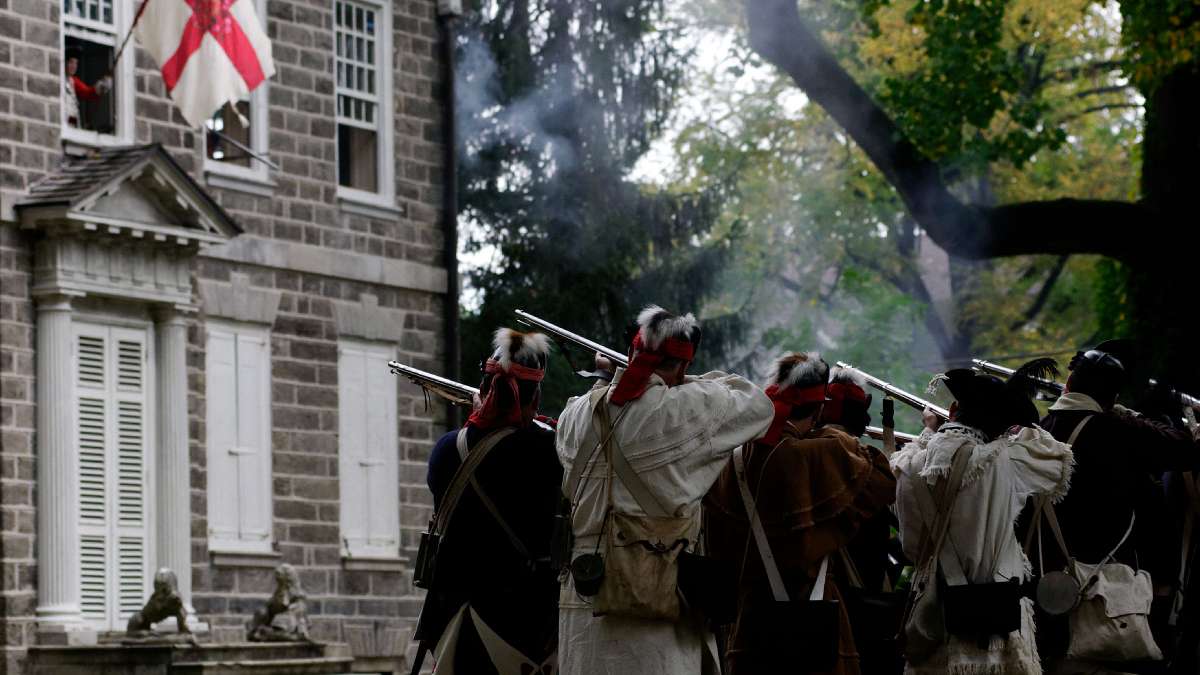
-
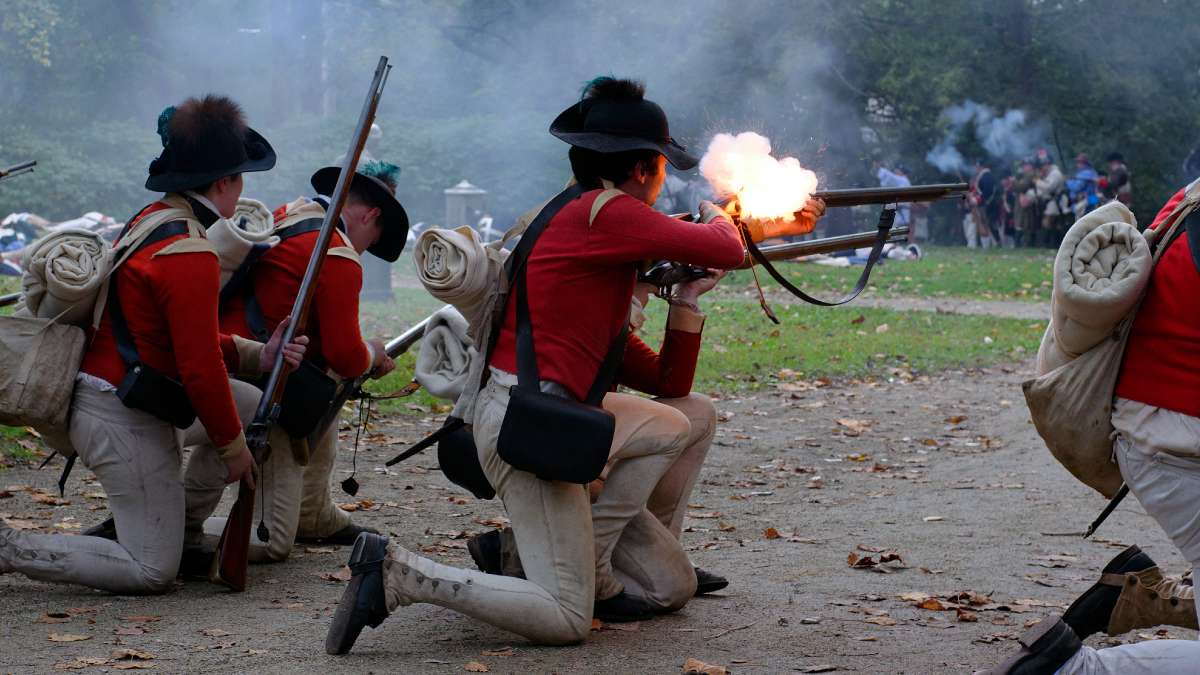
-
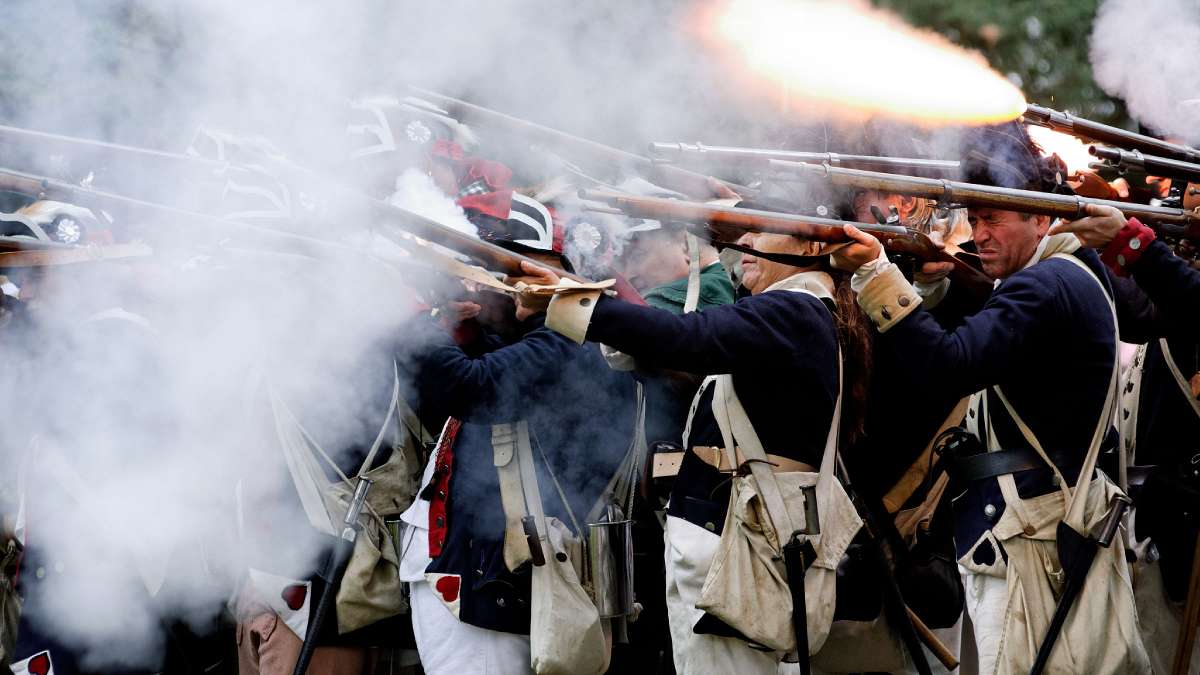
-

-
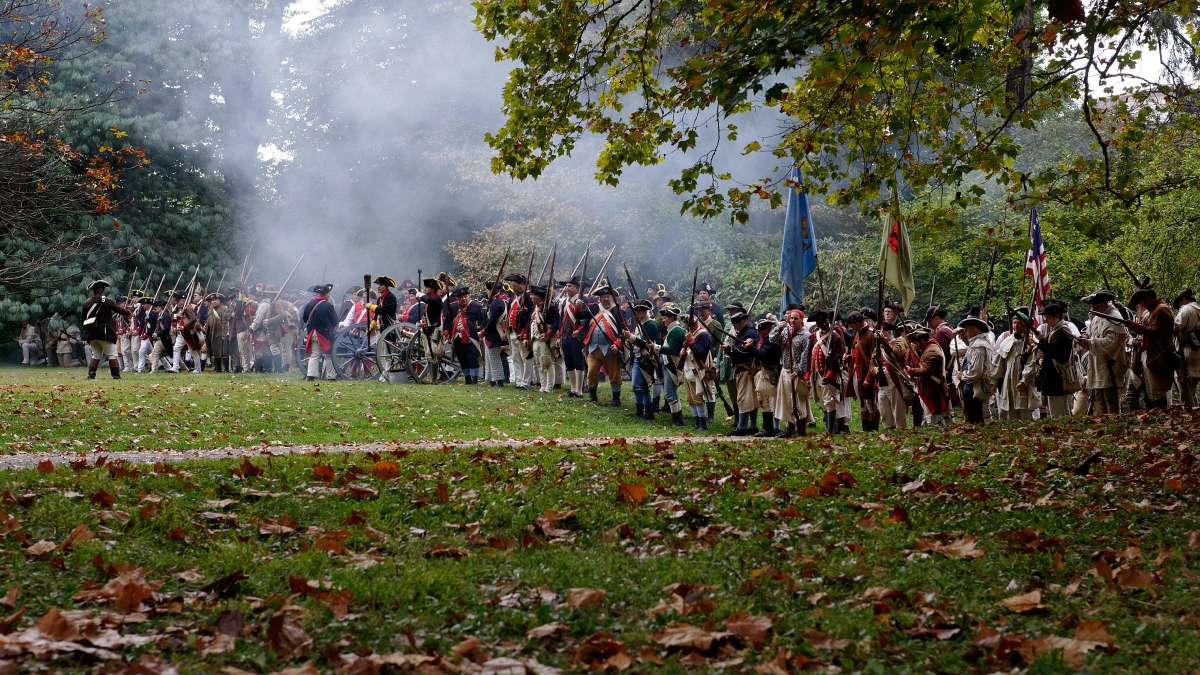
-

-
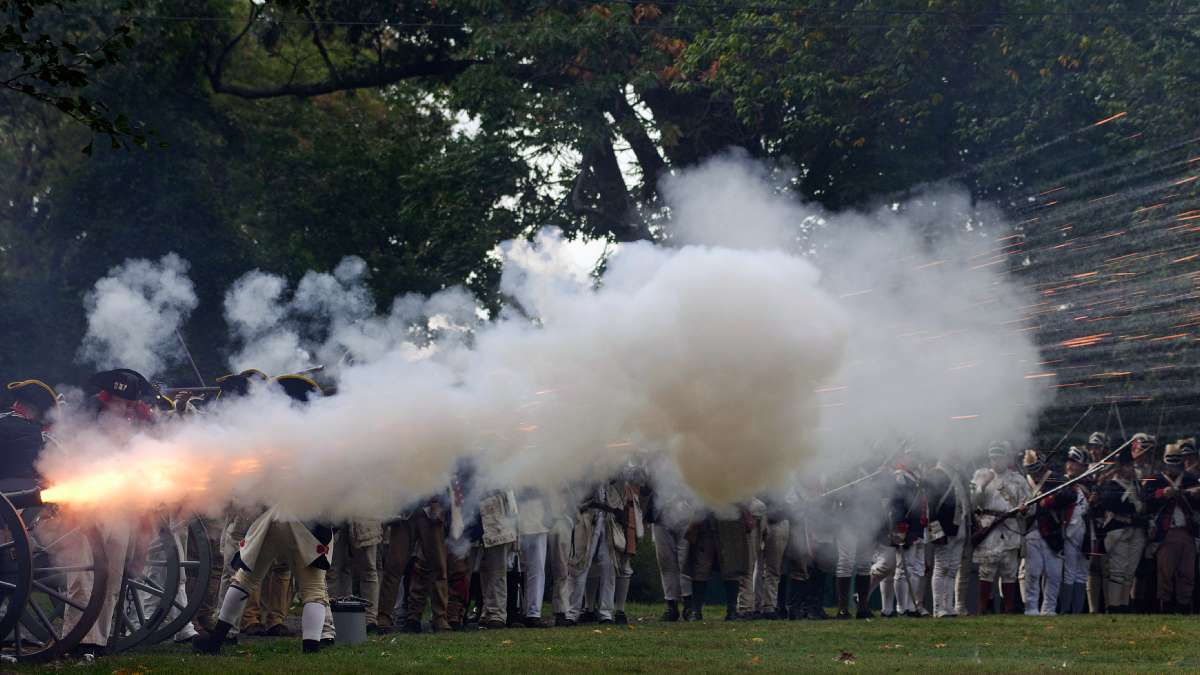
-
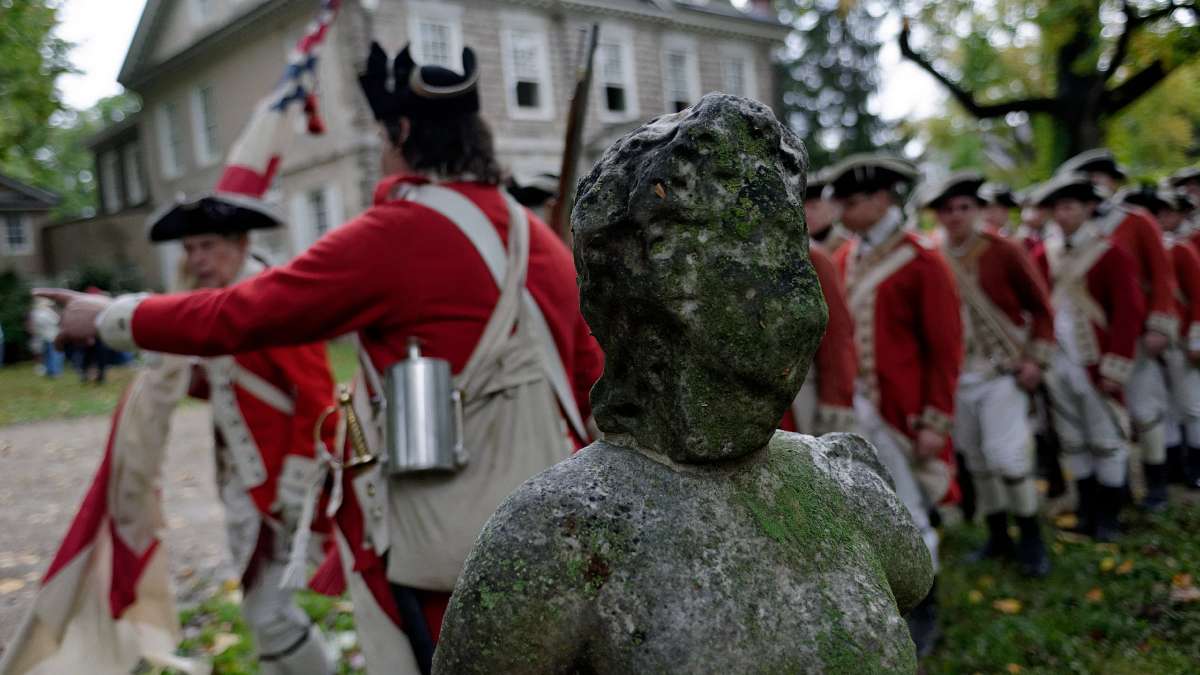
-
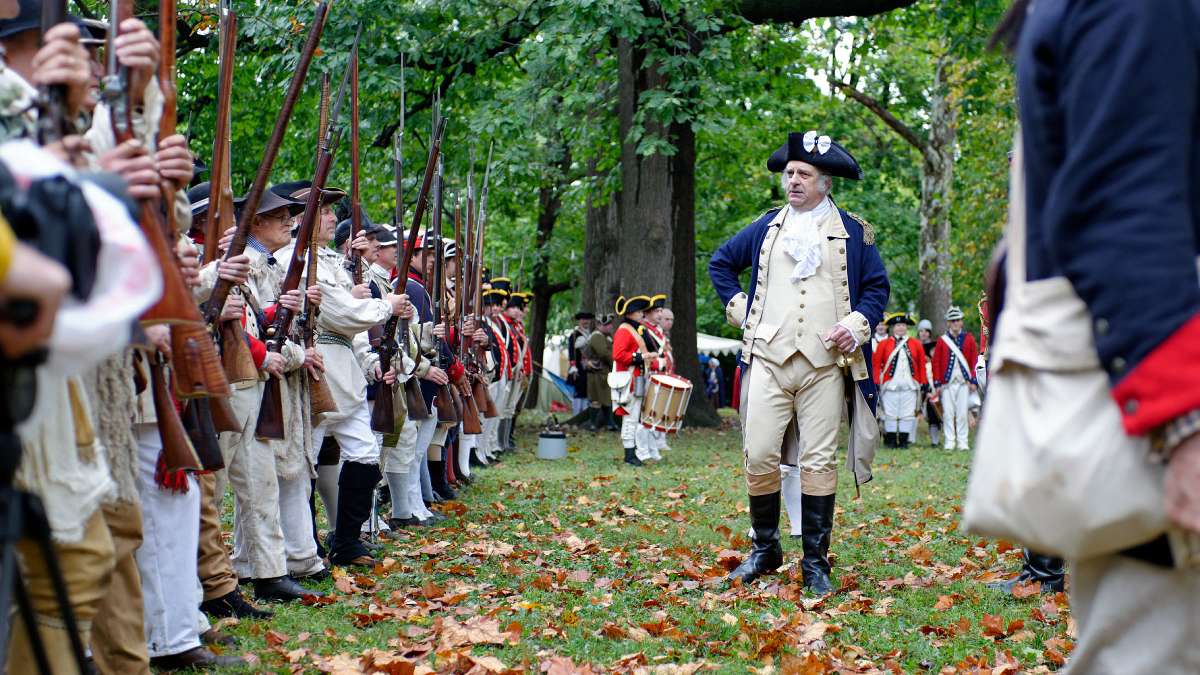
Historic Germantown puts on the annual Revolutionary Germantown Festival each fall. (Bas Slabbers/for NewsWorks, file)
At noon and 3 p.m. Saturday, more than 300 reenactors mustered on opposing ends of a two-block stretch of Germantown Avenue to face one another in the annual historical recreation of the Battle of Germantown.
Despite the holdover of inclement weather from the night before, well over 100 people of all ages made their way to the Cliveden grounds as rain gave way to scattered cloud cover in the late-morning moments.
While the Oct. 4 battle re-enactment is the centerpiece of the Revolutionary Germantown Festival, many of the 16 historic sites of Germantown develop programming especially for this annual celebration of the region’s colonial history.
Highlights included a graveside ceremony at the Upper Burying Ground featuring a rare ringing of the Concord School bell, tours of the Chew family home museum at Cliveden, performances by the MacGregor pipe band and a dramatic presentation by Ned Hector, an African American Revolutionary War soldier who participated in the Brandywine and Germantown conflicts.
Children’s activities scheduled for various locations throughout the day included a presentation on local plants and their medicinal uses at Awbury Arboretum, a hand-cranked ice cream demonstration and tasting at Grumblethorpe and an opportunity to learn and play traditional games at Wyck.
The Battle of Germantown
Tom McGuire, author of several books on the region’s Revolutionary War history and a teacher at Malvern Prep, offered detailed commentary on the historical context surrounding the sequence of events unfolding at Cliveden and its environs on the morning of October 4, 1777.
For McGuire, the battle of Germantown is one of the decisive moments in the Philadelphia campaign as it marked the first time Gen. George Washington staked out an offensive position against British forces.
Even though Colonial units were forced by circumstances to retreat at Germantown that day, the battle contributed to a growing sense among the leaders of the Colonial Army that resistance to the British military was more than a mere possibility.
“The British didn’t lose the Revolution for military reasons,” said McGuire. “The British Army was at that time one of the strongest in the world. But, what British military leaders realized too late was that unless they completely destroyed the Colonial Army, the war would continue indefinitely.
“Washington’s commitment to the Colonial Army despite major losses kept the Revolution alive. We didn’t win, the British lost.”
The sights and sounds
A haze of gunsmoke from musket and cannon fire hung over Germantown Avenue and the grounds of Cliveden and Upsala on Saturday morning.
Reenactors portraying the British forces retraced their tactical retreat into the Chew family home at Cliveden, where Musgrave commanded his troops to effectively turn the house into a fortress.
Musgrave’s men fired on Colonial forces from the house’s second story, and the marks made by Colonial rounds striking the house in return can still be seen today.
There is no other historic site in Philadelphia where the re-enactment of a Revolutionary War battle takes place on the actual site where it occured.
“While our work with our partner sites in Historic Germantown and the entire neighborhood shows best in festival days like [Saturday], it also shows every day in a variety of educational, revitalization and preservation projects that bring life to history in dynamic ways,” said David Young, executive director of Cliveden of the Historic Trust.
WHYY is your source for fact-based, in-depth journalism and information. As a nonprofit organization, we rely on financial support from readers like you. Please give today.



